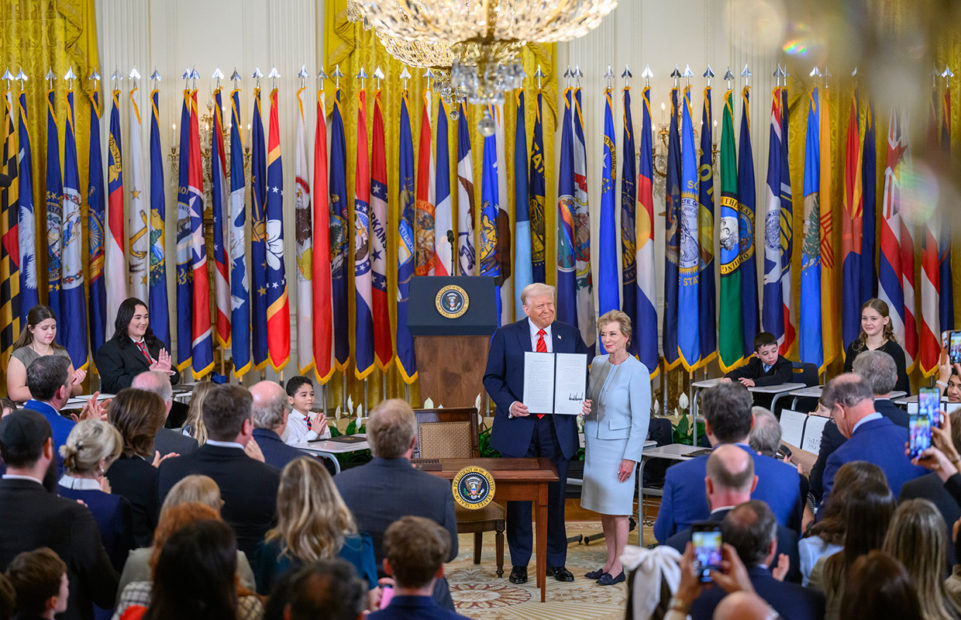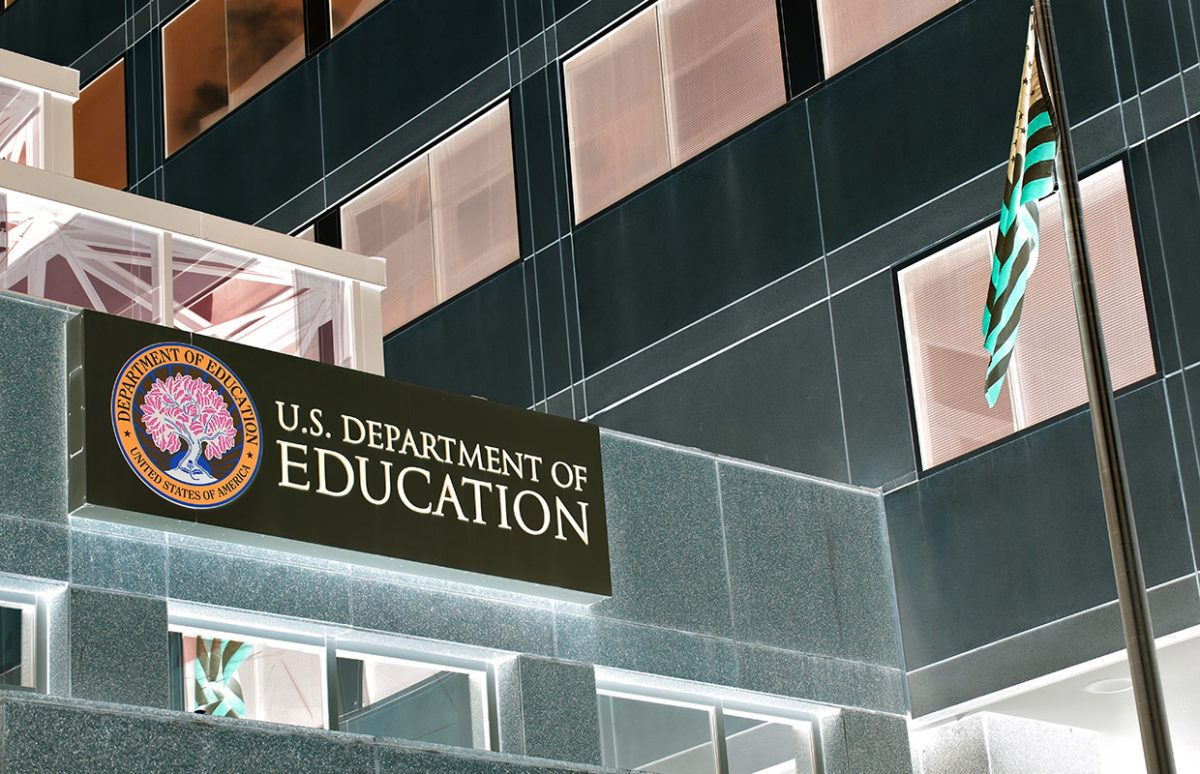On March 20, headlines around the world announced that President Donald Trump had dismantled the U.S. Department of Education. What does the Department of Education do, and has it really been closed?
The U.S. Department of Education is not the equivalent of the education ministries in many other countries, which usually set curricula and exams, and may even employ the teachers who work in the country's schools. Most political and practical power over public schooling in the U.S. is devolved to the individual states. The Department of Education was already the smallest of all the government departments in Washington, having only about 4,200 employees before the Trump administration slashed the workforce by almost half in recent months. It is mainly responsible for distributing grants and loans to public K-12 schools around the country, and administrating the student loans to be repaid by individuals for their college education. It oversees the civil-rights legislation on equal access to education for minority groups. It also undertakes or funds education research, but the Trump administration has cancelled many of those research contracts.
Much of the aid distributed to schools systems is to help schools with large numbers of poor students, and fund education for students with disabilities. Federal aid constitutes about 13.6% of the total funding for public K-12 schools according to statistics from the Census Bureau for the fiscal year 2022, the last available. But the proportion varies widely from one state to another and more particularly one school system or district to another. According to this graph by the Pew Research Center, Mississippi is the state that receives the most aid, and the Detroit school system in Michigan receives almost half its funding from the Department of Education. Pew reports that the Loudoun County school district in Virginia receives the least federal funding, just 5% of its budget.

According to the Department of Education website, the Department's programmes serve, "50 million students attending roughly 98,000 public schools and 32,000 private schools."
Because education in the U.S. is not a national affair, there is no equivalent of the national exams that students sit at the end of secondary schooling as is the case in many countries. Students are usually awarded a "high-school diploma" when they graduate, but the subjects and levels expected to be attained, and they way they are assessed, varies from school district to school district. Because of this, most students who want to go to university have to sit SATs (Scholastic Assessment Tests) or their equivalents. These standardised tests are set and administered by the College Board, an organisation regrouping colleges, universities and schools.
Has the DoE been Abolished?

Despite all the publicity surrounding President Trump signing the executive order on 20 March, the only way the Department of Education could actually be shut down would be if Congress passed legislation. The executive order directs Secretary of Education Linda McMahon to “take all necessary steps to facilitate the closure (of) the Department of Education and return education authority to the States, while continuing to ensure the effective and uninterrupted delivery of services, programs, and benefits on which Americans rely.”
However, even if the administration can't formally close the department, there is a limit to what the DoE's remaining employees can effectively do. For example, the DoE currently manages $1.6 trillion of student loans. President Trump has suggested that this part of the department's functions could be carried out instead by the Small Business Administration. However, the SBA has also announced it is cutting 40% of its staff.
Copyright(s) :
NLM Photo/Shutterstock
Pew Research Center
U.S. government
> Political Icons: The Donkey and the Elephant
> U.S Election: J.D. Vance
> Back to the White House
> New Congress, New Challenges
> Everything You Need to Know About: U.S. Presidential Inaugurations
> A President Passes
> President Trump Profile 2025
> A Youth Voice for Congress
Tag(s) : "access to education" "Congress" "Donald Trump" "education" "U.S. culture" "U.S. politics" "U.S.A."





